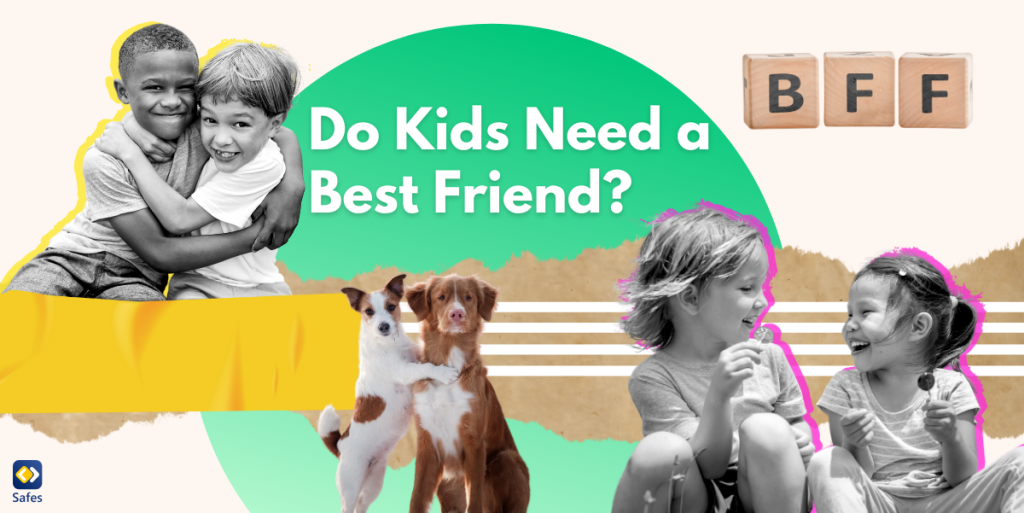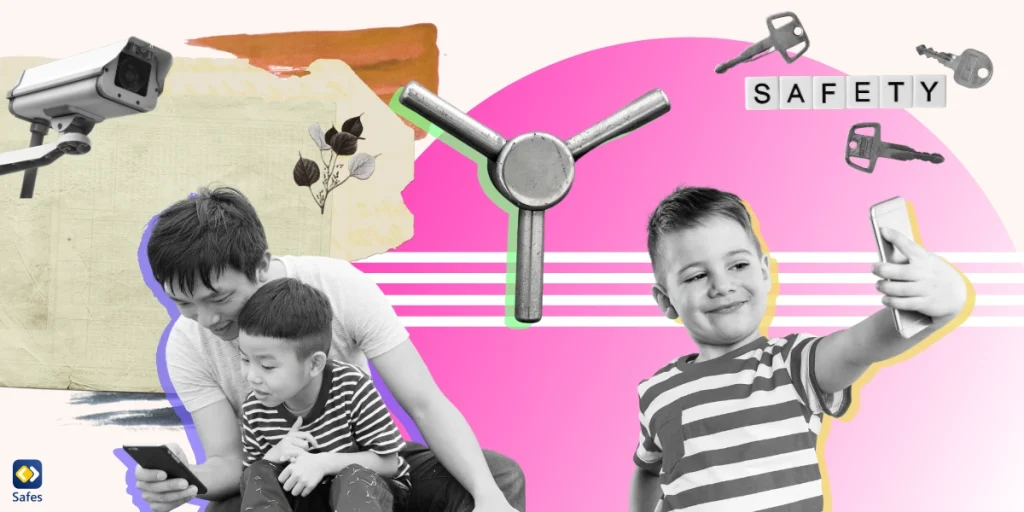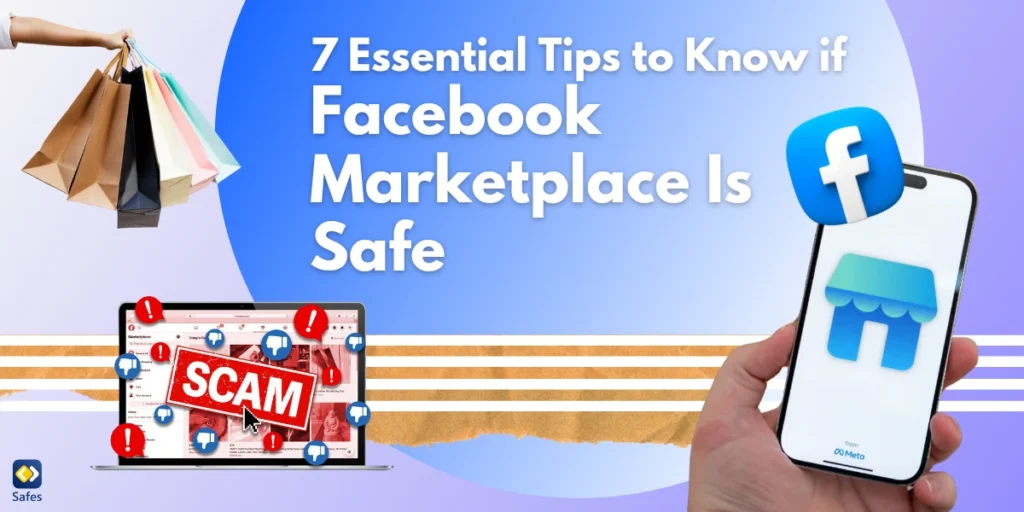Friendships are an important part of growing up. As parents, we often wonder about our children’s friendships and how these relationships affect them. One common question is: Do kids need a best friend? In this guide, we will explore this question and help you understand the role of friendships in your child’s life.
Download and Start Your Free Trial of the Safes Parental Control App
What Age Are Friendships Most Important?
Friendships play a crucial role throughout a child’s development. Children often go through a friendship cycle, where they make new friends, experience conflicts, and learn to resolve issues. This helps them develop important social skills. However, their friendships’ importance and nature can change as children grow. Among all ages, adolescence is considered the most critical age for social communication. Here’s a look at how friendships evolve at different ages:
Early Childhood (Ages 3-5)
At this age, children start to engage in parallel play, where they play alongside other children but not necessarily with them. Friendships are often based on shared activities and physical proximity. While these friendships may seem simple, they are important for developing basic social skills like sharing and taking turns.
Middle Childhood (Ages 6-12)
During the elementary school years, friendships become more complex and significant. Children start to form closer bonds and develop a better understanding of others’ feelings and perspectives. Middle childhood friendships are important for:
- Emotional Development: Kids learn empathy and how to manage emotions through interactions with friends.
- Social Skills: They practice cooperation, negotiation, and conflict resolution.
- Identity Formation: Friends help children discover their interests and form their identities.
Adolescence (Ages 13-18)
In the teenage years, friendships become even more important. Teens seek independence from their parents and turn to their friends for support, advice, and validation. Teenagers often rely on friends to understand and deal with the emotional ups and downs of adolescence. This also helps them establish their social identity and find their place in social groups. However, if your teenager doesn’t seem to be successful in finding friends, you need to step in and learn how to help teens make friends.
While bringing so many benefits, teenage friendships can also come with different challenges, such as:
- They might feel pressured to conform to their friends’ behaviors or choices, even if they go against their values.
- Friend groups can sometimes become cliquish, leading to feelings of exclusion for some. This is one of the negative impacts of high school cliques on teenagers.
- Conflicts and tensions may happen in emotionally charged teenage years.
- With the increase in online friendships, there’s a risk of cyberbullying and negative online experiences.
- Friends can sometimes encourage risky behaviors like experimenting with drugs, alcohol, or other unsafe activities.
- Spending excessive time with friends can sometimes distract from schoolwork, leading to lower academic performance.
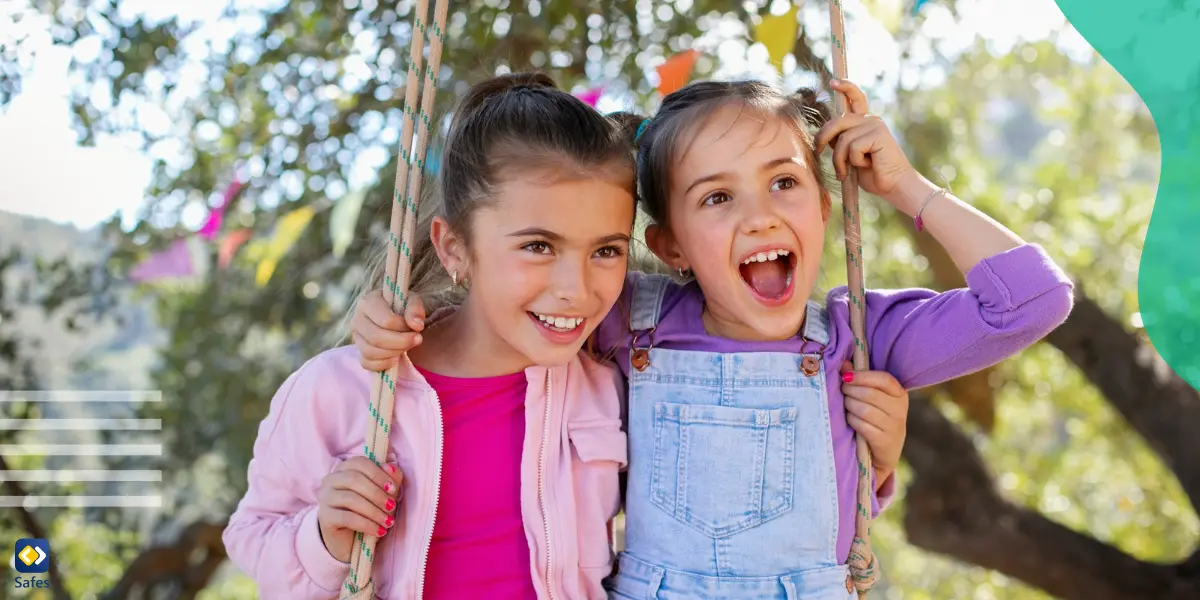
Do Kids Need a Best Friend in School?
Based on an article about children’s friendships and positive well-being by Mark Holder and Ben Coleman, social relationships significantly influence people’s health. Activities that involve social elements, like playing on sports teams, volunteering, and belonging to religious groups can enhance one’s health. Research has also shown that children aged 9-12 who spend time with friends are happier.
A best friend can provide a sense of security and someone to share feelings with. Most importantly, it can make the school environment less intimidating. A close friendship also allows children to develop important social skills like empathy, communication, and conflict resolution.
That said, having a best friend is not a necessity for every child. The most important thing is that your child feels happy, supported, and included, whether they have one close friend or a variety of friends. Moreover, having multiple friends can provide a broader support system, making children feel connected and supported by various people.
Is It Okay for Kids Not to Have Best Friends?
So, what if my child doesn’t have a best friend? It’s perfectly fine for kids not to have a best friend. It takes time for individuals to find a friend they feel intimate with. You should encourage diverse friendships and provide support for your child. This way, you can help them develop healthy, fulfilling relationships. As a parent, you can have a positive influence by offering support and guidance. Here are some steps you can take to help them:
- Encourage Activities: Joining group activities, sports, or clubs is a great way to find friends with common interests. Therefore, encourage them to toward these types of communities.
- Teach Social Skills: Your child may not know how to interact with others. This is when you need to help them learn how to start conversations, share, and take turns. Role-playing different social scenarios can be a fun way to practice.
- Talk to Teachers: In case you don’t know where the issue is, talk to their teachers. Teachers can tell you more about your child’s social interactions at school and may help facilitate friendships.
- Create Opportunities: Arrange playdates or social gatherings with other children to give your child a chance to interact in a comfortable setting. If you have friends with children, it can also be a good idea to invite them and let your kid communicate with their children.
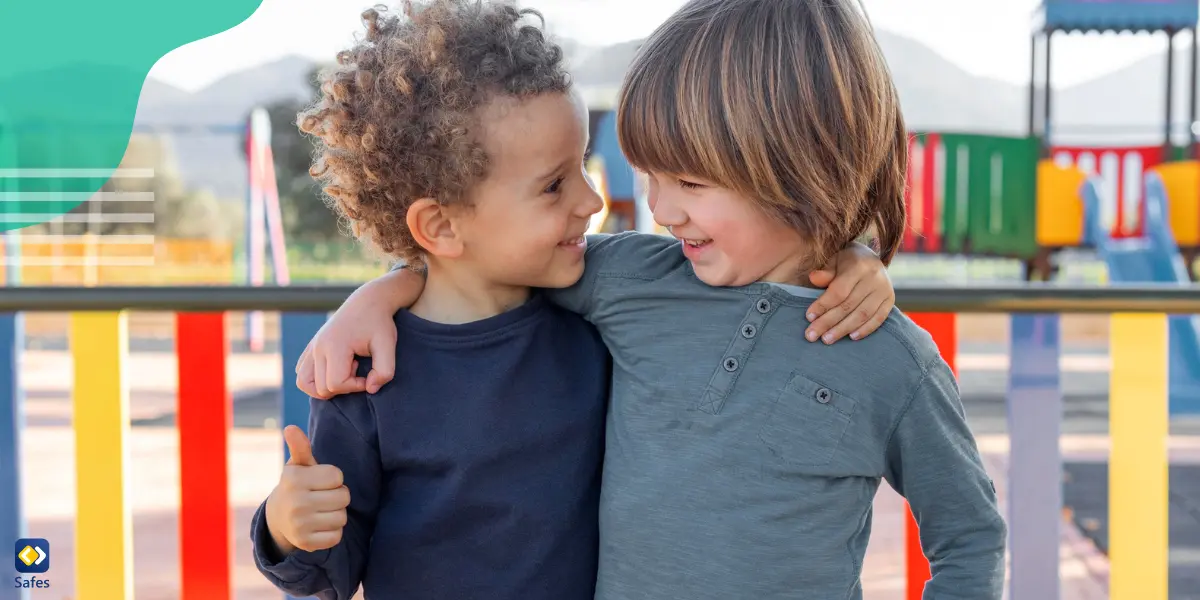
Final Word
Friendships are a vital part of growing up, helping children develop social skills, emotional support, and self-confidence. Whether your child has a best friend or a diverse group of friends, the key is to ensure they feel loved and supported. Encourage your child to build various relationships, offer guidance when needed, and foster an environment where they can thrive socially and emotionally.
In today’s digital age, managing your child’s social interactions can be challenging. Wouldn’t it be wonderful if you could manage your child’s online activities? This is what Safes, our parental control app allows you! This way, you can ensure they have a safe and positive social experience both online and offline. If you have used iPhone parental controls or other devices, you may be familiar with features like screen time management, app blocking, and activity reports. Safes provides all these tools and features you need to support your child’s social well-being.
Take the first step towards a safer and healthier digital life for your child. Download Safes today on Android and iOS and start your free trial. Help your child build healthy friendships and explore the digital world with confidence and security.
Your Child’s Online Safety Starts Here
Every parent today needs a solution to manage screen time and keep their child safe online.
Without the right tools, digital risks and excessive screen time can impact children's well-being. Safes helps parents set healthy boundaries, monitor activity, and protect kids from online dangers—all with an easy-to-use app.
Take control of your child’s digital world. Learn more about Safes or download the app to start your free trial today!
